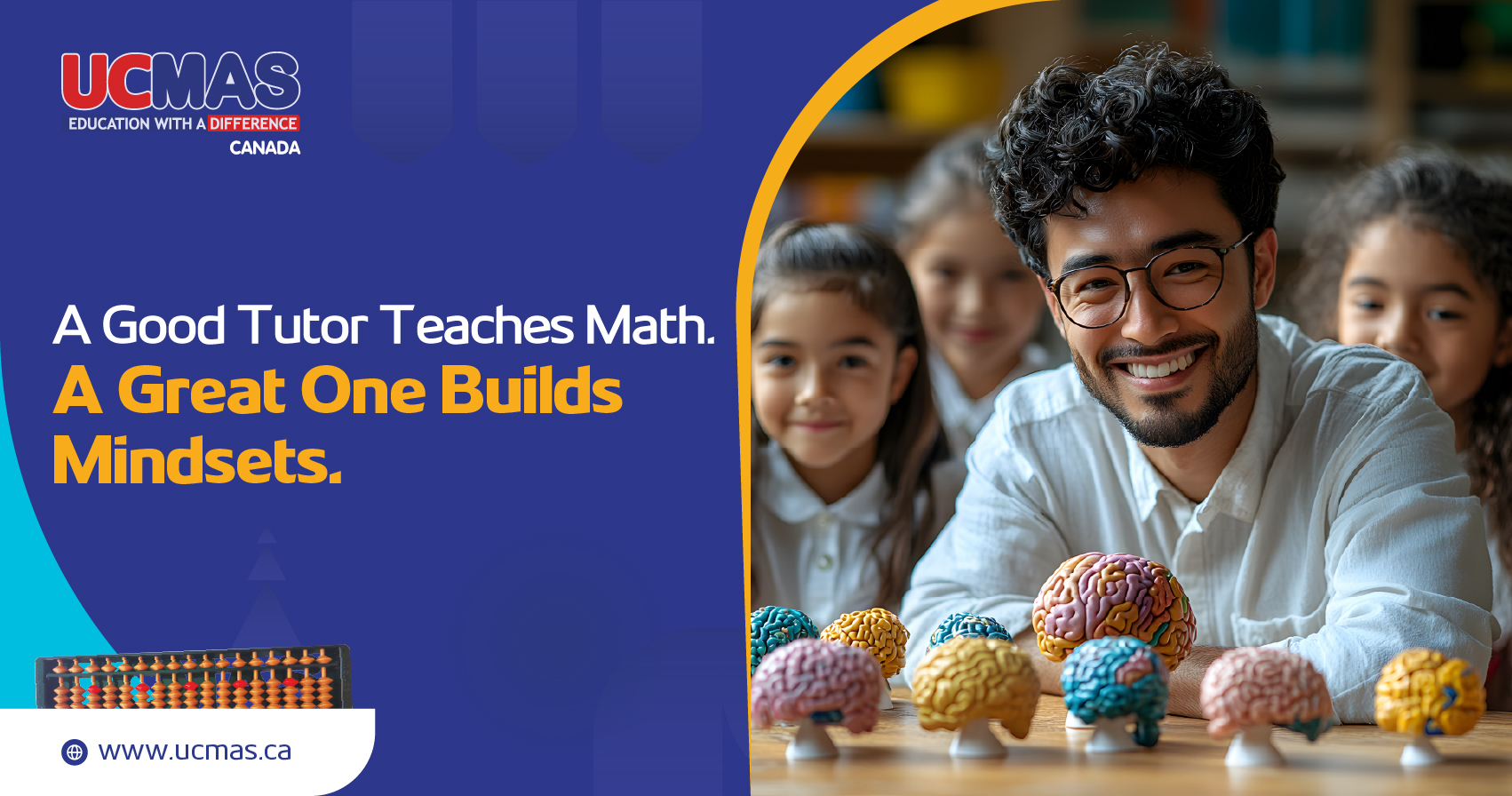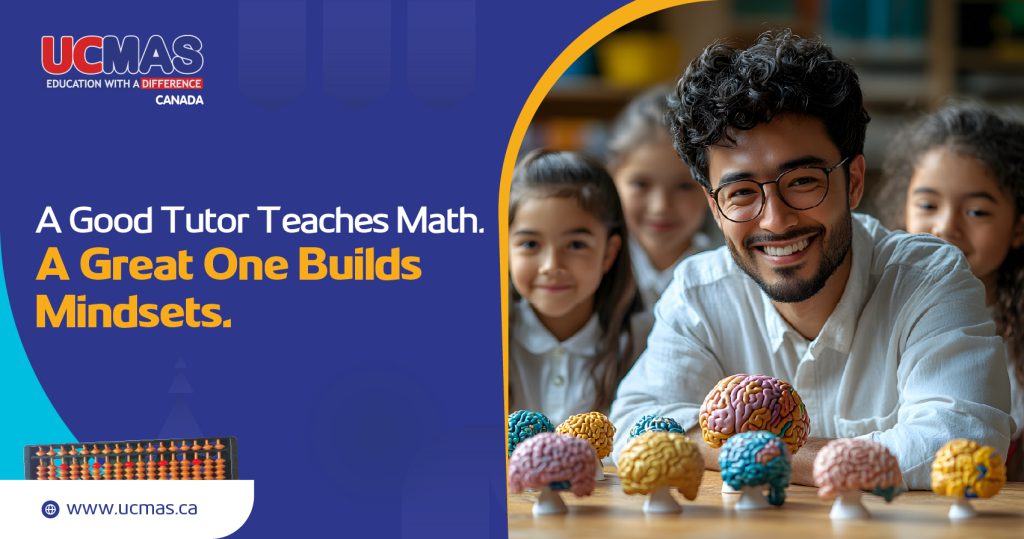
Math can be intimidating. Not just for kids, but even for parents trying to help with homework after a long workday. And when your child’s confidence begins to crumble under the weight of numbers, many parents turn to the next logical solution: a math tutor.
But here’s the thing: Not every math tutor will suit your kid, and finding the right one isn’t as simple as typing “math tutoring near me” into Google. Whether your child is struggling with subtraction or soaring ahead of their grade level, the quality of their tutor can make or break their love for math.
As the trend suggests, most parents with school-age children invest in tutoring, and math is by far the most requested subject. And yet, many parents still wonder, How do I know if it’s actually working? So, let’s dig deeper. In this blog, we’ll explore not just how to choose the right math tutor, but how to find someone who sees your child’s potential and nurtures it beyond numbers.

Why a Math Tutor Matters (Way Beyond Homework Help)
You might think tutoring is just about catching up or improving grades. However, at UCMAS, we view it as something much bigger. A good tutor doesn’t just teach math; they reshape how your child sees it.
That’s where the UCMAS approach stands out. We believe in mental math and abacus-based techniques that build concentration, memory, creativity, and logical thinking, all while improving math skills. It’s about developing life skills through numbers, not just solving equations.
Want proof? Studies have shown that early exposure to mental math techniques, such as the abacus method, not only improves numerical ability but also enhances brain development and problem-solving capacity in children.
What to Look for in a Math Tutor: Not Just “Good at Math”
Sure, you want someone who knows their math, but the right tutor needs more than a sharp pencil and a calculator. Here’s what truly matters:
1. They Go Beyond Math Scores
At UCMAS, we focus on cognitive growth, not just grades. A quality tutor should help your child improve focus, reduce math anxiety, and boost overall confidence. But the best tutors go even further – they build a strong foundation for lifelong learning by encouraging participation in competitive math tests, nurturing curiosity, and making learning genuinely enjoyable.
They don’t just prepare kids for exams, they develop their brains, inspire a love for problem-solving, and help them grow into confident, independent learners. If a tutor only talks about math tests and report cards, consider looking for Math Tutoring that goes beyond just academic growth and focuses on a child’s whole-brain development.
2. They Make Math Fun
If the tutor is just following the textbook, your child might as well be in school. Great tutors bring energy, games, real-world examples, and, yes, even some laughter, into the learning process. They light that spark of curiosity.
Tip: Ask them how they’d explain fractions using pizza. If the answer bores you, it’ll definitely bore your child.

3. They Understand How Kids Learn
Teaching isn’t just about delivering content. It’s about decoding how your child learns best. Is your kid a visual learner? Do they need hands-on tools like an abacus? The tutor should adapt, not expect your child to. Check out this great read on effective ways to introduce math to kids to get a sense of what really works.
A Handy Checklist for Parents: Is This the Right Math Tutor?
Still unsure how to know if a tutor is the right fit? Here’s a simple mental checklist to help you decide. If you find yourself nodding “yes” to most of these, you’re on the right track:
- Do they make math feel fun, not frustrating?
- Are they trained to work with young learners, not just older students?
- Do they adjust their teaching style based on how your child learns best?
- Is their focus on boosting confidence and curiosity, not just grades?
- Do they use tools like the abacus, puzzles, or games to make learning hands-on?
- Can they show real, visible progress, not just say “your child is doing fine”?
- Do they keep you in the loop about what’s being taught and how your child is improving?
If you’re saying yes to most of these, congratulations, you’ve probably found a tutor who does more than just teach math. They’re building a mindset.

What About Common Math Problems?
Before you even begin searching for “math tutors for kids,” it’s helpful to understand what your child struggles with. Is it attention? Confidence? Concepts like decimals or geometry?
You must explore why your kid is struggling with math, so you can help them fix it. Learn about the most frequent math-related hurdles children face and how to identify them early.
You’re Not Just Choosing a Tutor, You’re Choosing a Mindset
At the end of the day, a math tutor isn’t just someone who helps your child fill in the gaps. They’re someone who opens doors to more questions. When you find the right fit, you’re not just investing in math; you’re investing in their growth, creativity, and a strong foundation with early childhood education.
So, when you type “math tutoring near me,” remember to look beyond the results. Look for someone who connects with your child, understands their brain, and empowers them, not just academically, but personally. Before you send them for math tutoring, you might want to introduce them to some new math words from an abacus math glossary.
Ready to Explore Math Learning with UCMAS?
UCMAS goes far beyond traditional tutoring. Our abacus-based mental math program is designed to enhance your child’s brain development and lifelong learning capacity while making math fun!
Interested in registering? Visit your nearest UCMAS centre or simply book a free info session with us online.
FAQs
What’s the right age to start math tutoring?
As early as 4–5 years old. At this age, kids are naturally curious and absorb new concepts quickly. It’s not about drilling them with academics, but about introducing math through fun, foundational activities that set them up for success later.
Is it okay if my child is already doing well in math? Should we still consider tutoring?
Absolutely. Tutoring isn’t just for struggling students. Many advanced learners benefit from enrichment, competitive test prep, and exposure to mental math techniques that sharpen focus and speed.
Is abacus math actually helpful?
Absolutely. Abacus-based learning is backed by neuroscience and proven to enhance brain function. It activates both hemispheres, improving focus, photographic memory, and calculation speed—skills that help far beyond just math.
My child hates math. Will tutoring make it worse?
Not if the approach is right. A patient, engaging tutor who uses hands-on tools and games can turn math anxiety into math curiosity. The goal is to rebuild confidence through positive reinforcement and small, achievable milestones.






